When winter rolls around and most of our breeding birds have departed for points south, we on North America’s temperate shores turn our attention away from the trees and toward the water. Winter means waterfowl. While any river, lake, or pond might harbor a greater abundance of ducks, geese, and swans, the excitement isn’t all inland. Most seaducks, a distinct subfamily of Anatidae, ply icy waters year round. Even our northern latitudes are south for the winter for many of these species from eiders to oldsquaw to scoters.
Scoters are seaducks in the genus Melanitta. Most duck species are dimorphic with scoters no exception. While scoter hens are drab brown, the drakes stand out with predominantly black plumage and swollen, sometimes garish bills. These diving ducks breed mostly in Arctic portions of Asia, Europe, and North America, wintering in temperate zones.
Getting a count of scoter species is not as easy as one might imagine. Some authorities recognize only three distinct species while others acknowledge five:
Melanitta nigra is called Common Scoter in Europe and Black Scoter in North America. The latter population is either in the process of being recognized as a separate species or already one, in which case it is deemed the American Scoter (M. americana). This duck by any name is the only scoter with entirely black plumage.
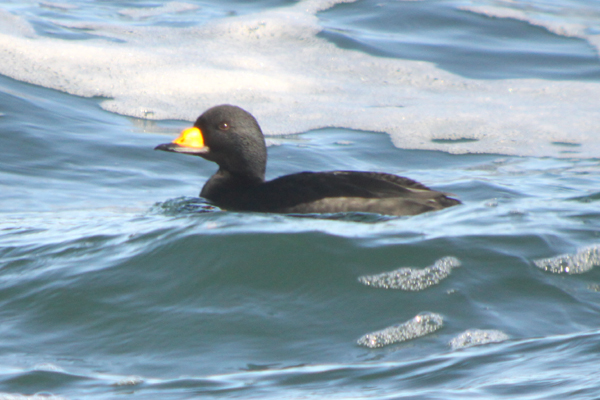
Black (American) Scoter (see Corey’s gallery)
Melanitta fusca is another tricky wicket. It may be a single species known as the Velvet Scoter thoughout most of Europe and Asia and the White-winged Scoter in North America and Siberia. Alternately, M. fusca may identify just the former, while M. deglandi names the latter. In either case, that flashing white speculum won’t steer you wrong.
Melanitta perspicillata identifies only the Surf Scoter, but that doesn’t meant that this bird doesn’t have a few additional appellations of its own. This duck, endowed with a breathtaking, bulbous yellow, white, and red bill, has been called many other names; Red-billed Scoter, Skunkhead Coot, Spotty-nosed Scoter, and Surf Duck are just the English ones. However, Skunkhead may be most apt because of the prominent white patches on this black bird’s nape and forehead. M. perspicillata is the only species of scoter found exclusively on the American continent.
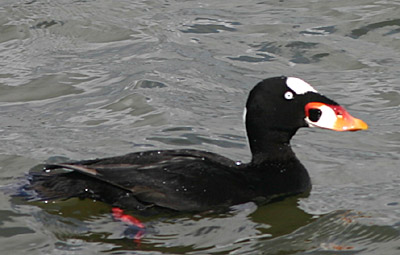
Sexy, sexy Surf Scoter

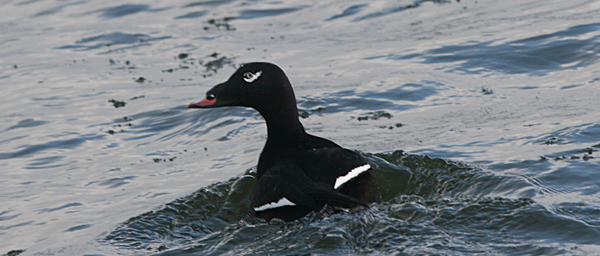
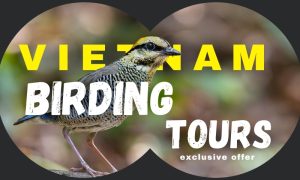



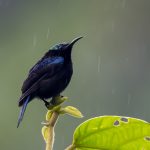

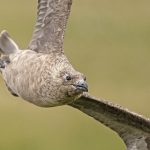
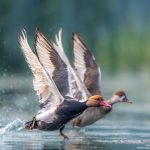
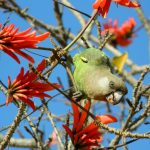
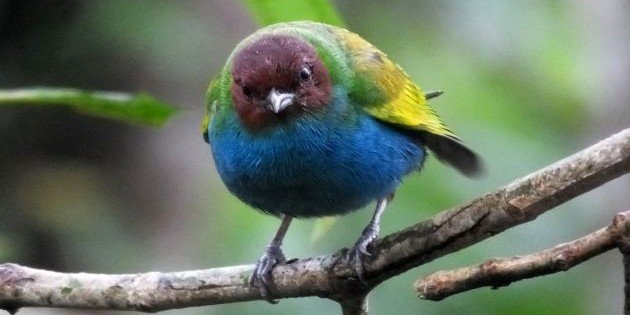
I’m not sure that any of those common names quite capture the carnival taking place on that bill!
Does it bother anyone else when people call them “scooters”?
Scooters?!?
I have just reported, with multiple pictures and now with confirmation from a professional birder, a White Winged from our little lake in Polk County, Texas. Turns out to be the first White Winged Scoter report from Polk County and all neighboring counties. Wonder if they’ll make a movie — who will they get to play me?